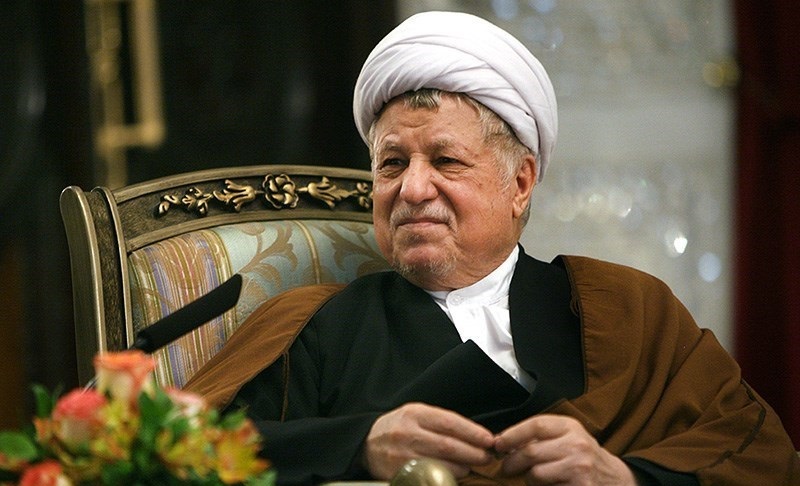by Gary Sick
Based on my own observations over the years here are a few comments that seem worth adding to the flood of commentary.
First, Rafsanjani was truly a pragmatist. He seemed to believe genuinely that Iran’s revolutionary system would survive only if it engaged with the outside world. There was never any doubt about his devotion to the system that he had done so much to shape. But he was willing to go beyond stale dogma in pursuit of rescuing a system that he recognized was performing very badly.
He was a businessman, and his solutions always seemed to involve deal making. His attempt to bring in the US and others involved making them an offer they could not refuse. Hence the Conoco offer, or the trade of hostages for Bush’s “good will.” However, the US always found it could refuse the offer whenever the time came to pay up. It was one of his great disappointments.
Rafsanjani was the master at leading from behind. He seemed to be uncomfortable out in front, leading a fight or a principled crusade. Instead, he preferred to work behind the scenes, manipulating events. This gave his leadership an ambiguous quality.
People in the west tended to see him as a reformer, and that seems to have been correct at least in his later years. But he liked to let others lead the charge, while he stayed back out of the limelight to push the levers. This was not a lack of courage, in my view, but rather an accurate appreciation of his own strengths and weaknesses.
As a consequence, he won the smaller battles but lost the war. When he finally came out to do battle on his own, he was repeatedly defeated, even humiliated. His loss to Ahmadinejad was a catastrophe.
Over the past eight or ten years, despite his undeniable presence, he was unable to win the election for Moussavi and Karrubi. He was not able to keep them out of house arrest. In fact, he was not able to keep even his own children out of jail.
The strategic voting of the 2013 election was clever and classic Rafsanjani tactics. But I would argue that Rafsanjani has had very little impact on policy, even after the Rouhani election. He favored the nuclear deal with the west, but the reason it was adopted was because Khamenei supported it, regardless of his body language. Rafsanjani had become a back bencher – an important commentator but not a policymaker.
Contrary to some of my colleagues, my guess is that Rafsanjani’s departure will have very little actual impact on the course of developments from here. If I were in Rouhani’s shoes, I would certainly be sorry to lose an ally with such sterling revolutionary credentials. After all, the centrists need all the friends they can get.
However, the outcome of the next election will depend on Rouhani’s ability to persuade Iranians that they are better off with the nuclear agreement and that he is capable of defending Iran’s interests better than any alternative choice. Having Rafsanjani behind him would no doubt have had its appeal, but Rouhani would have been foolish to depend on Rafsanjani to win that battle.
One should always be cautious talking about legacies so close to the event. Rafsanjani will without question be seen as one of the towering figures of the revolutionary era. His place in history, however, will depend very much on the fate of the very system that he helped to put in place but then came to criticize for its anemic performance, and especially its self-destructive rivalries, corruption, and discord.
He wanted to cure those problems, and he failed. RIP
Gary Sick is a senior research scholar at Columbia University’s Middle East Institute and an adjunct professor at the School of International and Public Affairs. He is the executive director of Gulf/2000, an international online research project on political, economic and security developments in the Persian Gulf, being conducted at Columbia University since 1993 with support from a number of major foundations. Sick served on the National Security Council under Presidents Ford, Carter, and Reagan. He was the principal White House aide for Iran during the Iranian Revolution and the hostage crisis. Sick is a captain (ret.) in the U.S. Navy, with service in the Persian Gulf, North Africa, and the Mediterranean. Reprinted, with permission, from Gary Sick’s blog.





